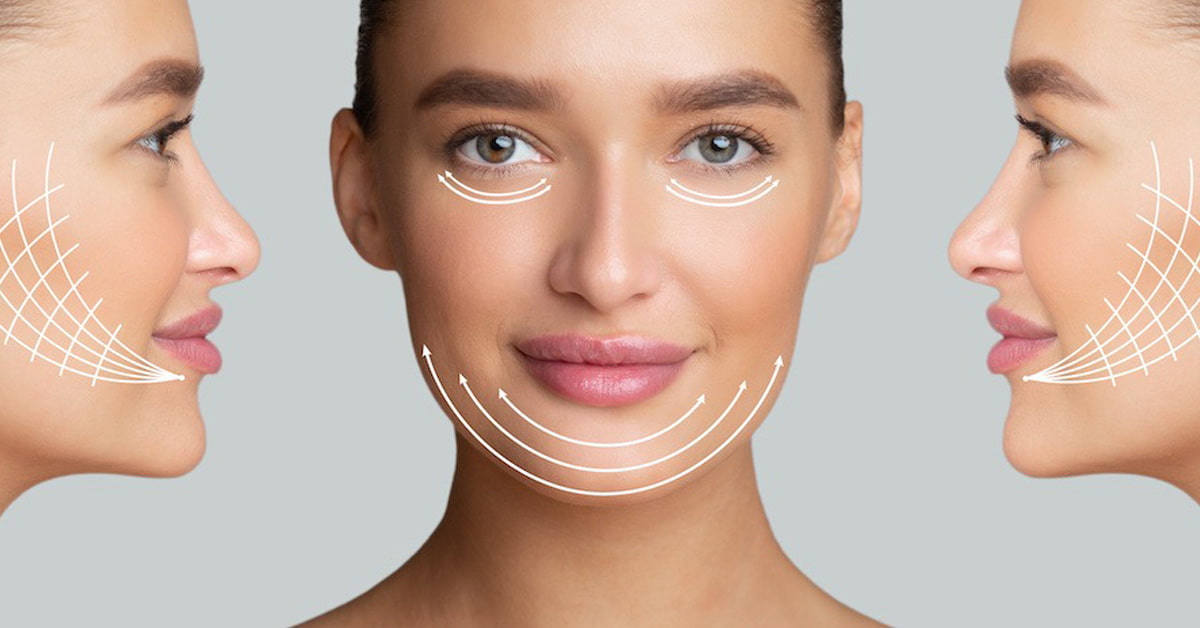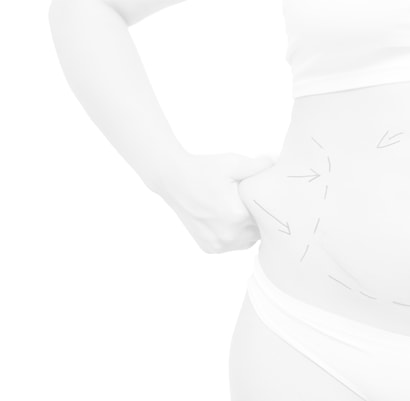Recovery Process After Facelift Surgery

Facelift recovery stages
People who want to have facelift surgery have many questions in their minds. In particular, many issues such as whether pain will be felt during the postoperative recovery process, whether bruises and scars will be permanent, nutrition after facelift surgery and the process of returning to daily life cause this surgery to create a question mark in minds.
Although this procedure, which targets a sensitive area such as the face and neck, may seem painful, it involves an easy procedure, contrary to popular belief, thanks to developing technology and appropriate treatment methods. If the specialist doctor is selected and the doctor's instructions are followed to the letter, facelift surgery is performed without any problems and patients eventually achieve an appearance beyond their dreams.
First 24 Hours After Surgery
It should be known that the mild pain felt in the first 24 hours after facelift is temporary. Patients spend the first night after surgery in the hospital. The pain felt is controlled with the help of painkillers deemed appropriate by the doctor and his team. If everything is fine on the second day, the patient can be discharged. Asking for support from family members or a friend during this process makes things easier. Pain that persists at home can be easily relieved with the help of painkillers.
What are the Do's and Don'ts After Facelift?
It is important to follow the doctor's instructions to recover quickly and smoothly after facelift surgery. Knowing the do's and don'ts for incision care and coping with the discomfort felt for a few weeks after surgery makes the process easier. Here are some points to consider during the healing process:
Things to do after a facelift
- - The first 24 hours after a facelift are important. There should be a relative who can accompany the patient the first night after surgery. He/she should help the patient eat and drink water. The patient should be with him/her while meeting his/her toilet needs; the patient should be with him/her while getting out of bed or walking. Patients undergoing surgery at Clinic Evoy are accompanied by a companion during their entire stay in Turkey. The companion will explain in detail all the procedures you need to follow here.
- - The patient should keep his/her head elevated against undesirable conditions such as swelling and edema. The appropriate position should be taken while resting.
- - Cold ice should be applied to relieve pain and soreness in the operation area.
- - Medications recommended by the doctor should be taken regularly.
- - Drink plenty of water. Drink plenty of fluids to relieve edema and support the healing process.
- - Surgical incisions should be cleaned as recommended by the doctor.
- - Ointments or creams prescribed by the doctor should be applied regularly.
- - Clothes that button in front should be preferred. Clothes that go over the head should not be preferred.
- - Light brisk walks should be taken.
- - The time and instructions recommended by the doctor for showering or bathing should be followed.
What Not to Do After Facelift
In order to successfully manage the healing process after facelift, you should be sensitive to the points the doctor warns. Some activities should be limited for a certain period of time.
- - Heavy exercise and activities should be avoided. Especially in the first few weeks, strenuous sports activities and heavy lifting should be avoided.
- - Protect yourself from the sun. Be careful against UV rays to avoid permanent scarring in the wound area.
- - Stitches should not be pressed. The face should not be rubbed with uncleaned hands and the suture area should not be touched.
- - Social activities should be limited; crowded places and places that can be hit should be avoided as much as possible.
- - Do not swim in the pool and sea; areas such as steam room, Turkish bath or sauna should not be used unless the doctor gives permission.
Swelling and Bruising
Swelling and bruising in the facial area after facelift surgery should be considered normal. The head should always be kept upright for the first few days. Even while sleeping, it should be kept high to provide less pressure. If the pressure is less, pain, swelling and edema will be less. Ice can be applied to prevent swelling and bruising.
Postoperative Nutrition
Paying attention to nutrition after facelift surgery accelerates and facilitates the healing process. The aches and pains that may occur in the first days after surgery may prevent chewing. Although it is difficult to eat solid food during this period, it is necessary to keep the body vigorous by taking plenty of fluids. The immune system can be kept strong with soft foods and vegetables high in protein. Limiting salt consumption and following the doctor's recommendations to remove edema from the body will lead to the best results.
Dressing and Wound Care in the Healing Process
Postoperative dressing and wound care should be meticulously performed for fast and easy healing. Incision areas are wrapped with bandages after facelift surgery. The bandages should be opened and cleaned every few days. Surgical sutures should be left clean and dry. Cleaning products recommended by the doctor should be used.
Postoperative Control Process
Although the process varies from patient to patient, sutures are usually removed after 1 week. It is important to care for the incision areas after the stitches are removed. The surgical areas should not be rubbed and should be treated gently. Incision sites should be protected from the sun until the healing process is completed. Doctor controls continue in monthly periods to keep the postoperative process under control. These controls should not be disrupted; cleaning products, ointments, creams and medications prescribed by the doctor should be used.
How long does it take to look normal after a facelift?
As the swelling decreases in facelift surgery, you will gradually be able to see the results more clearly. Although it varies from person to person, you will look good after 1 month and you will be at your best after about 6 months.
How long should you sleep with your head elevated after a facelift?
After facelift surgery, you may have to change your sleep patterns. So much so that patients are asked to sleep on their backs with their heads elevated for 2-4 weeks after surgery. The exact duration may vary according to the patient's recovery time. While this period is shorter in mini facelift surgeries, it is longer in deep plane face lift surgeries.
How Long Until You Can Go Back to Work After a Facelift?
Most patients can return to work in 10 to 14 days. When you return to work, you may still have some swelling, bruising and scarring on your face. However, it is possible to cover most of these with makeup. However, your full return to work depends on the speed of your recovery. If your surgeon provides the necessary controls and deems it appropriate, you can return to your work life in a shorter time than these periods.
How many days after a facelift can you wash your hair?
In general, you can wash your hair after 1 week after surgery. However, in this case, you should not apply high temperatures when washing your hair and avoid using the hot setting of the hair dryer. You should delay dyeing your hair for six weeks.
How long do you have to wear a face strap after a facelift?
After facelift surgery, you should wear compression garments for two weeks to protect your wounds from external factors. The healing of this period is relative to the past. You have achieved this after your surgeon has given permission.
How soon after facelift can I walk?
After the operation, you will take a walk under the guidance of your doctor while you get rid of the effects of anesthesia from your body. However, you should not take longer walks alone for a few days. In general, you can take short walks not exceeding 30 minutes after 3 days.
It should be known that the aches, pains and stitch marks experienced after facelift surgery are temporary and it should be aimed to establish a trust-based health experience by cooperating with doctors who are experts in their field. Clinic Evoy, with its professional surgeons and experienced team, will be with you in all preoperative and postoperative processes. You can send us all your questions about facelift surgery by filling out the form below to get answers to every question you have in mind immediately!
Free Online Consultation
Request a Callback




















